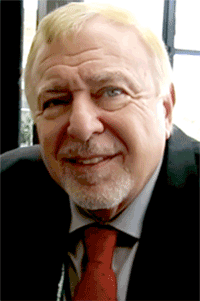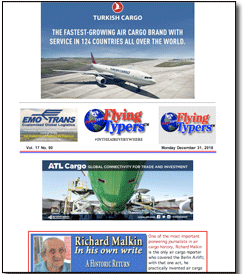|
President Trump’s efforts on revamping
the U.S. trade agreements to make them more fairly balanced came
under much criticism but they are starting to bear fruit and trade flows
are increasing.
The U.S.-Mexico-Canada Agreement was signed
with two of the U.S.’s top three trading partners, Mexico and Canada.
China, the third partner is still engaged in trade talks that are close
to being concluded, although there are other considerations (political)
involved.
Below is an outline of the new USMCA agreement,
which keeps most of the original NAFTA agreement. The name change (to
U.S.-Mexico-Canada Agreement) was at the insistence of President Trump.
Canada
• Canada can continue to refuse to
export environmentally sensitive natural resources (pipeline water).
• Canada can continue to protect its
culture sector.
• It increases access to Canadian
agricultural market for American producers (from 3% to 3.59% of total
dairy market tariff-free).
• It increases percentage of North
American sourced parts for cars to qualify for tariff-free status (from
62% to 75%).
• All tariff-free autos must have
40-45% of components produced by workers making USD$16/hour or more.
Mexico
The agreement is mostly the same as the
old NAFTA agreement.
• Mexico will double its consumer
duty-free limits from $50 to $100. That means that any shipment valued
less than $100 is duty-free, making the shipping process cheaper and easier
for small packages. This might increase
small package movements from the U.S. to Mexico.
• 40-45% of auto components need to
be built by workers earning USD$16/hour or more, which makes Mexico less
competitive, since currently its auto workers earn about half of that.
That wage may lead to more manufacturing in the U.S.
• The agreement has stronger provisions
for intellectual property protection, which protects American businesses
in a number of sectors - pharma, entertainment, fashion, big agro, biotech.
It will make it harder for Mexican firms or individuals to manufacture
generic medicines; use unlicensed seeds, chemicals or pesticides; pirate
movies, tv shows or music; and use brand names, trademarks, logos or designs
without paying licensing fees.
• The agreement will also increase
the requirements for Mexican truck drivers and vehicles to operate in
the U.S. beyond the border zone. Right now there are a limited amount
of permits that exempt Mexican trucks from U.S. safety and emissions standards.
These permits will be eliminated, preventing the operation of trucks that
don't meet those standards.
Bill Boesch
 Mr.
Boesch started his career in global transportation and logistics in
1965 working for Seaboard World Airlines. He later joined Flying Tiger
Airlines and Emery Worldwide. Mr. Boesch then left Emery to become
Pan American World Airways’ Senior Vice President where he headed
both Passenger and Cargo Sales and Operations. He left Pan Am to lead
American Airlines’ Cargo operation and retired from AA in 1998.
Under his direction American became a world leader in the air cargo
and logistics business. Mr.
Boesch started his career in global transportation and logistics in
1965 working for Seaboard World Airlines. He later joined Flying Tiger
Airlines and Emery Worldwide. Mr. Boesch then left Emery to become
Pan American World Airways’ Senior Vice President where he headed
both Passenger and Cargo Sales and Operations. He left Pan Am to lead
American Airlines’ Cargo operation and retired from AA in 1998.
Under his direction American became a world leader in the air cargo
and logistics business.
Mr. Boesch was involved in projects
for the U.S. Government throughout his airline career and became more
active after retiring from AA by serving as Director of U.S. Aviation
Policy for the White House Commission on Aviation Security. He was
part of the extensive on site planning and support of the Iraq drawdown,
involvement with the Afghanistan operations, and has worked on all
aspects of the Civil Reserve Air Fleet (CRAF) from both an airline
and government standpoint.
Mr. Boesch is the recipient of numerous
awards including the Lifetime Air Cargo Achievement Award, the Ellis
Island Medal of Honor and various awards from the U.S. Department
of Defense.
Mr. Boesch is presently continuing his
work for the U.S. Government and heads up The Council For Logistics
Research. |
|





